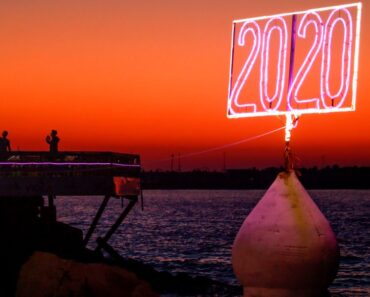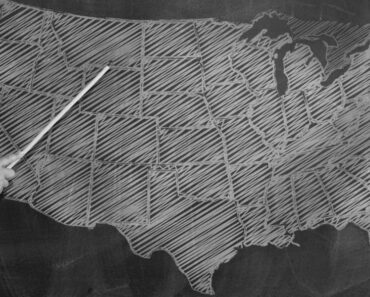This post was originally published on this site
As the United States heads into a 2020 White House election predicted to draw record voter turnout, one New York entrepreneur is hoping his digital platform will cut election confusion and compel more people to cast ballots.
TurboVote helps subscribers register to vote, find polling places, and research candidates and measures. The app was launched by Democracy Works, a team of software developers and civic organizers created by Seth Flaxman and Kathryn Peters, former classmates at the John F. Kennedy School of Government at Harvard University.

As the U.S. contends with the challenges of politically disenchanted millennials and voter suppression allegations, Flaxman, Democracy Works’ chief executive officer, hopes that his Brooklyn-based team will help ensure as many people as possible vote next year.
A major funder has the same hopes. The Knight Foundation in September awarded Democracy Works a $3 million grant to further its work. The cash infusion brings the nonpartisan organization much closer to a $20 million fundraising goal to boost the voter experience next year.
“Apathy is out there but technology really is solving the other pieces of it,” said Flaxman, 34, who lives in Brooklyn.
It is not unusual that Flaxman’s livelihood is rooted in politics. As an undergrad at Columbia University, he ran for student body president. He and his ticket, the Open Columbia Party, convinced Columbia College to turn all educational loans into grants for students from families earning less than $50,000 annually.
Later, as a graduate student at Harvard, he missed voting in three different elections because he did not have a handle on the logistics on dates and locations to cast ballots. One lost opportunity took place when he missed voting in a mayoral election in New York City because he did not complete the requirements to vote absentee. Later, he missed a primary in New York.
“A third was when I was walking down a street in Cambridge and saw a sandwich board that said today was the election, and I thought that was the final straw,” Flaxman said. “I started looking online. I thought the Internet must have solved this.”
It hadn’t, so Flaxman proceeded to convince his friend, Peters, whom he described as more of a technologist, that they should step into the gap. “I persuaded her that our democracy could use some attention,” Flaxman said.
In 2010, they launched TurboVote, their first project, which has experienced a boom in the past year and a half, Flaxman said. Along with the Knight Foundation grant, the company doubled in size to 51 employees and is now engaging with 6 million voters/subscribers.
In the past seven years, the philanthropic organization has invested a total of $5.15 million in Democracy Works and its technologies.
“We have been a supporter of Democracy Works since its early days,” Lilian Coral (CQ), director of national strategy and technology innovation for the Knight Foundation, told Fortune.
“For us, it’s more of a general gist toward our mission, which is to foster a more informed society,” Coral said.
The foundation hopes that Democracy Works and TurboVote help people make informed ballot decisions, Coral said. For many young people in particular, information surrounding elections and voting is not readily available and there is a disconnect, according to Coral.
“We believe that voting should be as easy as shopping in the digital age,” Coral said. “I think when there are these kinds of questions about whether people understand where they can vote, questions about voting location and everything else, that’s where we think information is really critical and everyone should have that information.”
Political observers are cautiously optimistic about the potential effect TurboVote will have on the 2020 race.
With the predictions of record-breaking voter turnout next year, there is likely to be confusion from jurisdiction to jurisdiction regarding where to vote, what you need to take with you to vote and the like, Republican strategist Holly Turner said.
“If Democracy works can help with that, I think that’s a great thing,” said Turner, who is based in Washington. “It’s exciting … to see that there’s a way for some of the smaller counties to have some resources and support.”
But she added a note of caution.
“You get into, ‘We’ll, it’s an app and it’s collecting data on voters and it owns that data,’” she said. “Are they going to provide information about candidates and, if so, how do they frame that information? What issues do they want to put on the app to say candidates are for or against certain issues? Obviously, there are human beings behind apps like this. All of us have our innate biases, even when we have good intentions. Those are just some things voters should be aware of.”
Ron Lester, a veteran Democratic pollster based in the Washington, D.C., area, said any effort that brings more people to the polls is likely to make a difference. He also points out the millennials, who are likely to need a service like TurboVote, are disenchanted with the United States.
“I think the bigger issue is when the electorate performs like it should, you get a totally different result than when you have a lot of votes being suppressed,” Lester said during discussion of issues that prevent Americans from casting ballots, such as alleged voter suppression.
As for Flaxman, he believes that all signs indicate Democracy Works will bring the receipts next year of a more representative voting electorate.
“Every program of ours is scaling exponentially in a way nonprofits rarely experience,” he said. “I think we could see a 10-point jump in turnout from historical averages and I think we’ll be powering a significant amount of it.”
More must-read stories from Fortune:
—Google, Facebook, and others trying to save America’s largest guest worker program
—Wall Street isn’t that worried about Elizabeth Warren, but they’re watching
—Are white Democrats turning on presidential candidates due to Latino outreach?
—All the candidates who qualify for the December Democratic debate—so far
—The 2020 tax brackets are out. Here’s what you need to know
Get up to speed on your morning commute with Fortune’s CEO Daily newsletter.





